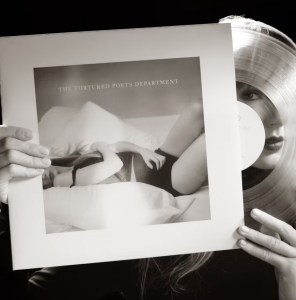Striving for perfection is a risky and fruitless pursuit for teens — “perfect” will always be out of reach. Generally, adolescents develop perfectionist tendencies when they feel insecure and seek to deflect that insecurity by presenting to others as flawless. There is little debate that this push and pull can take a considerable emotional toll on any individual. As students emphasize surface achievements such as high grades or college admissions and increasingly compare themselves to others, both perfectionism and anxiety are on the rise.
It’s not just perfectionists who are at risk. All human beings have a natural tendency to compare themselves to others. And research on social comparison suggests that when humans perceive inequity, we suffer. Regardless of the objective differences between one group and another, the mere perception that we are a “have not” can lead to poor health outcomes and increased anxiety. Feeling “less than” triggers a similar anxiety response in our brains and bodies to the one that occurs when we face a physical challenge or scary event.
Click, Compare, and Despair
Consider all of the information teens can use to compare themselves to others. This generation has grown up with social media at their fingertips. Although most teens would say they’ve been lectured by adults ad nauseum about the permanence — and potential dangers — of what they post, they are simply used to the idea of living life online for many to see. Their sense of privacy is vastly different from that of their parents. Consequently, young people are not only keeping track of their own successes and failures, but also those of their peers. At any given moment, a teen can check social media and feel “less than” simply by seeing a party to which they weren’t invited, the A+ their classmate received on a paper, or a friend’s painstakingly polished Instagram post which also happens to benefit from perfect lighting and perhaps a little home editing.
College-Bound and Comparison-Driven
The college process is another realm ripe for social comparison. As a high school counselor with an office close to the senior locker section, I am often privy to snippets of passing conversations among our oldest students. And right now, their minds do seem to be on college. “Where are you applying?” they ask one another. Perhaps they are just curious. But perhaps they also want to know how their own college lists size up. “What was your grade on the AP Stats test?” they inquire, maybe to offer congrats or comfort, but more likely so they can assess where they stand in the class. These students might simply be sharing the latest gossip, but feelings of inadequacy often lie hidden behind such transactions: “Will I get into my top choice school? Do I have what it takes?” Whether they realize it or not, kids are living in a comparison culture that puts their mental health at risk.
It’s Not Just About the Kids
Adults are equally susceptible to comparison-driven anxiety. Parents, too, have easy access to the success stories of others’ kids, which can lead them to wonder whether their own offspring are living up to their full potential. And if not, who is to blame? When parents fear judgment that their kids aren’t measuring up, that stress can breed conflict in the household, sometimes causing parents to cajole, pressure, nag, dwell on their kids’ weak spots or intervene when their kids should be learning to advocate for themselves.
Now What?
There is little we can do to mitigate opportunities for comparison in our lives today. But there are steps adults can take to combat the negative effects of comparison culture. If our perceptions drive the “compare and despair” attitude, a shift in perspective can be a powerful tool to fight against it. Talk with your kids about situations in which they might compare themselves to others and how it makes them feel. Work together to create strategies to avoid those scenarios or better deal with them when they happen. And above all, explicitly focus on the positive aspects of your lives. Gratitude for our values, strengths, and relationships can go a long way to take our minds away from the illusory pursuit of perfection.
What can parents do to combat comparison culture?
- Label it. Inform kids about this comparison phenomenon. It can be helpful to script it out a conversation starter. “You know, it’s normal to get stressed when something makes us doubt ourselves or our status. It’s something our brains do to help us keep reaching toward our goals. But it can also make us feel pretty cruddy if we let it. Let’s talk about some examples of when that happens and how we can deal with it.”
- Stay mindful of social comparison at the parent level. Recognize when you may be entering a subtle battle with another parent about who has the best kid or who is the better parent and then disengage — no one actually wins.
- Be smart about social. Limit social media for younger children. Teach older children to recognize when social media might be leading to comparison-based stress and help them plan time off when that happens.
- Establish guidelines for sharing academic achievements. Encourage your kids not to share grades publicly or ask others about their grades. Teach them how to focus on the process rather than the end result. “I’m really proud of myself for all the hard work I put into that paper. I was so nervous to give that speech, but it felt really good to overcome that.”
- Emphasize what’s really important. When kids find themselves heading towards comparison-driven angst, staying mindful of their highest values (such as honesty, generosity, kindness, perseverance, etc.) can help guide them in a more meaningful direction. Compliment them for being a good friend, holding the door for someone, or working through a challenging assignment. Don’t save your praise for surface achievements.
- Enjoy children for who they are without wishing they were someone different. Nurturing kids’ existing strengths has a way of insulating them against the negative consequences of social comparisons.
Sources:
Curran, T., & Hill, A. P. (2019). Perfectionism is increasing over time: A meta-analysis of birth cohort differences from 1989 to 2016. Psychological Bulletin, 145(4), 410–429. doi: 10.1037/bul0000138
Payne, K. (2018). The broken ladder how inequality affects the way we think, live, and die. New York, NY: Penguin Books.
Quon, E. C., & Mcgrath, J. J. (2014). Subjective socioeconomic status and adolescent health: A meta-analysis. Health Psychology, 33(5), 433–447. doi: 10.1037/a0033716



